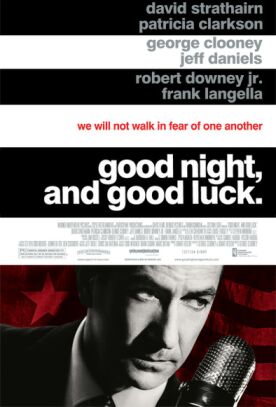Character
Character by Mike Van Diem, the Dutch winner of the Academy Award for best foreign film, is an astonishingly old fashioned picture, of a sort (here is a sobering thought) that simply could not be made in America today. Some representative of the feminist thought police would have got to it long before it was finished and suggested a few changes—for instance, making the struggling single mother, Joba (Betty Schuurman) the hero, bravely facing up to the benighted prejudices about such domestic arrangements to be met with in Rotterdam in the first two or three decades of the century. As it is Joba is a taciturn presence, hardly sympathetic who, as housekeeper to the the sinister-looking bailiff, Dreverhaven (Jan Decleir), is raped by her employer more out of inarticulacy of feeling than anything else. The man comes as near to an endearment as is possible for him when he says to her, “When is the wedding, Joba?”
But Joba is as emotionally closed down as he is. Pregnant, she moves out with her child to brave the taunts of “whore” and the demands of her young son with equal impassivity. “We need nothing of him,” she tells the boy, Jacob Willem, when he is growing up and being persecuted by his schoolmates for not having a dad. At this point, she won’t even tell him who his father is, but the boy deduces it from an encounter in the street. When he is later arrested for a petty crime and gives his name as Dreverhaven, the bailiff is summoned and tells the police he has never seen the boy before in his life, though he knows perfectly well who he is. Jacob then goes home and repeats his mother’s phrase: “We need nothing of him.”
But there are multiple ironies to these denials of need. The mother’s needs remain obscure. She almost never talks, and Jacob has to realize that it is not because she has any particular hatred for him but because “our characters clashed. . .we were opposites.” When he grows up (his character now played by Fedja van Huêt) she can’t wait to get him out of the house, and rents his room out to a lodger, forcing him to sleep in a cubbyhole. There is only a single moment, late in the film, when an astonishing offhand remark about Jacob Willem’s renunciation of love and marriage in order to make a success of his career gives us a momentary peep into her closed up emotional life.
Jacob Willem’s needs always seem to revolve, in spite of himself, around the figure of Dreverhaven, who seems to have conceived a deadly hatred of the boy. As eager to get out of the house as his mother is to have him out, he borrows money from a loan-sharking bank which he only later finds out is controlled by Dreverhaven to buy a small business, a cigar shop. “I was free,” he exults in retrospect of the separation from his mother. “We were free of each other at last.” But none of the members of this strange little family is ever free of the others. Soon, Jacob Willem finds that he has been swindled and is out 900 guilders with no means to pay it back. Dreverhaven moves to have him declared a bankrupt. He escapes this threat only because he hasn’t enough net worth even to be a bankrupt.
But he manages to get a job in the law office that was handling his case through the assistance of one of the partners, the kindly and, indeed, fatherly Dr De Gankelaar, whose lesson is in plain contrast to the proud needlessness that Jacob Willem has learned from father and mother alike. “Those who cannot accept a gift cannot give anything themselves,” he says. With his help, the boy rises to become office manager and then decides to go on from there to take a law degree. As if challenging him, he borrows the money for his education from Dreverhaven under unfavorable terms. At every turn Dreverhaven seems to try to thwart him, and yet neither we nor Jacob Willem can avoid the suspicion that there is more to their relationship than hate. The defiant not-needing of Joba has created a passionate needing in the two men for each other, which can only express itself in hostility and, finally, physical violence. Dreverhaven tells Joba that “I’ll strangle him [Jacob Willem] for nine tenths and the last tenth will make him strong.”
Dreverhaven himself is not sure that, in the end, he won’t “strangle him for the last tenth too.” In the climactic scene, when Dreverhaven offers Jacob Willem congratulations on his legal qualification, the latter says: “I can’t take the hand of one who has always worked against me.”
“Or worked for you,” murmurs Dreverhaven.
Such displacement and sublimation of feeling—to say nothing of the old-fashioned idea of character-building through hardship—is beginning to look wildly exotic in the midst of our late-century passion for letting it all hang out and indulging every velleity as if it were the most pressing and undeniable of needs. This film, which would have been fairly unremarkable (if still worth seeing) had it been made in the period in which it is set, is itself a needed corrective to the spiritual lassitude of our times.
Discover more from James Bowman
Subscribe to get the latest posts to your email.







